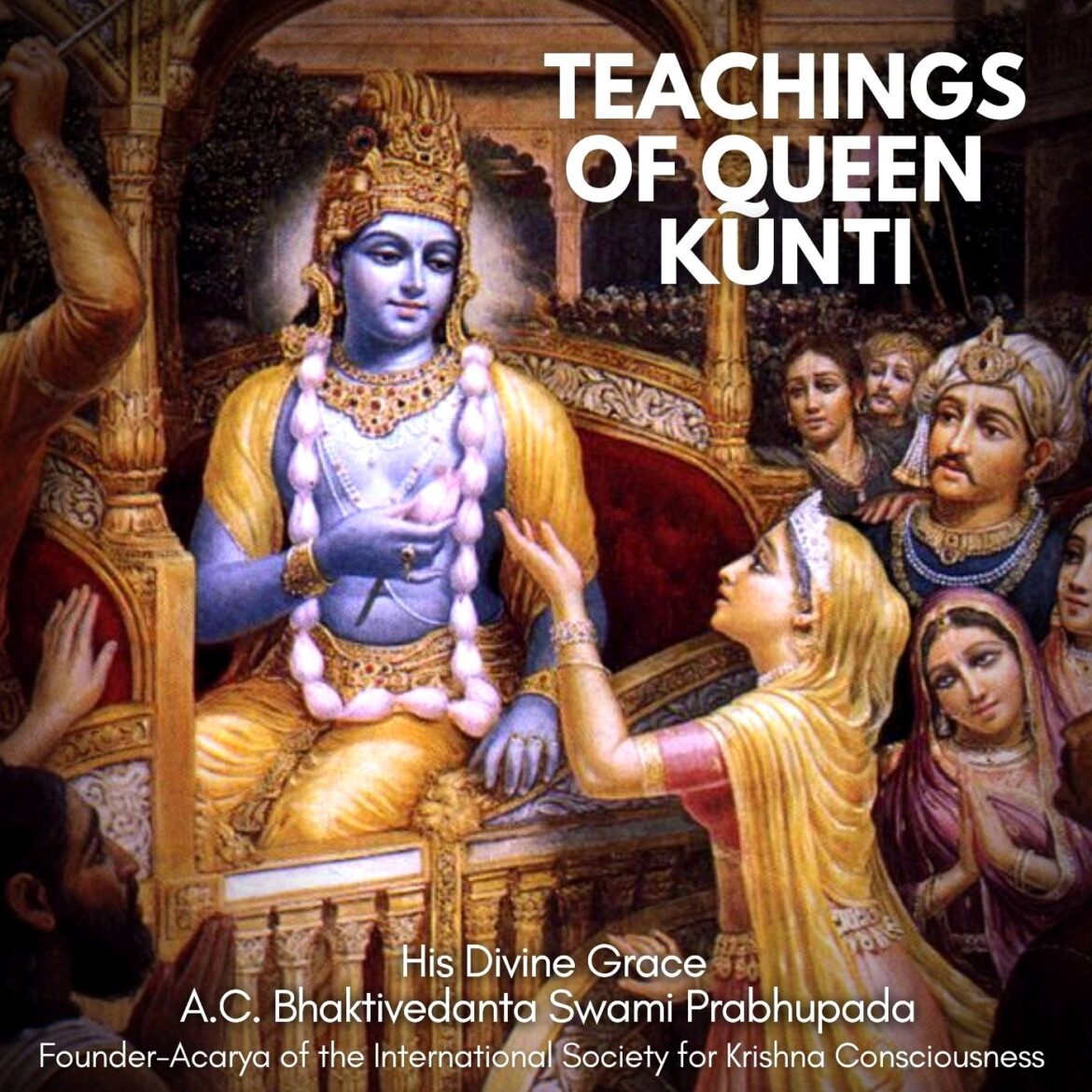As they appear in the First Canto of the Bhāgavatam, Queen Kuntī’s celebrated prayers consist of only twenty-six couplets (verses 18 through 43 of the eighth chapter), yet they are considered a philosophical, theological, and literary masterpiece. The present book (Teachings of Queen Kuntī) includes those inspired verses and an illuminating commentary by His Divine Grace A. C. Bhaktivedanta Swami Prabhupāda, founder-ācārya of the International Society for Krishna Consciousness (ISKCON) and renowned Vedic scholar and spiritual leader. In addition to this commentary (originally written in 1962), Teachings of Queen Kuntī contains further explanations that Śrīla Prabhupāda gave in a series of lectures delivered in the spring of 1973 at ISKCON’s centers in New York and Los Angeles. At that time he analyzed the verses in significantly greater detail and shed even more light upon them. This book offers the reader a deeper look into what it means to live immersed in a spiritual life and opens a window into the thoughts and experiences of both Queen Kuntī and Śrīla Prabhupāda, two elevated practitioners of the yoga of devotional mysticism.
Introduction
Episodes playlist 271-310

Reading books by Srila A.C. Bhaktivedanta Swami Prabhupada daily. Each of these books is a literary masterpiece, they have all the answers to any questions of life and everything necessary to uplift and nourish our soul, develop our loving relationship with God, Krishna, and help us relish our adventurous spiritual journey. Such a deep, bonafide, theological science based on Vedic scriptures has never been presented like this before. Chant Hare Krishna, dive into these books, be happy and make others happy! From Mayapur with love, Your humble servant, Sulalita devi dasi
Queen Kuntī prayed: “Being beyond the range of limited sense perception, You are the eternally irreproachable factor covered by the curtain of deluding energy. You are invisible to the foolish observer, exactly as an actor dressed as a player is not recognized.” ••• links will be published in tomorrow’s episode!

One of my Favorite Quotes
Now here also, in this verse, Kuntī continues to express herself with humility. This humility is very good in devotional service. Therefore Śrī Kṛṣṇa Caitanya Mahāprabhu teaches us, tṛṇād api sunīcena taror api sahiṣṇunā: “One should be more tolerant than the tree and humbler than the grass to make progress in spiritual life.” This is necessary because for one who is living in this material world there will be so many disturbances, just as if one were traveling on the ocean. One cannot expect a very peaceful situation on the ocean; even a big ship may also be unsteady, and at any moment there may be tumultuous waves. Similarly, in this material world we should always expect danger; one cannot expect a very peaceful life within this material world. The śāstra, the Vedic literature, says, padaṁ padaṁ yad vipadām (SB 10.14.58): at every step there is danger. But if one becomes a devotee, then one can escape (māyām etāṁ taranti te).
Chapter 3 The Most Intelligent Woman



